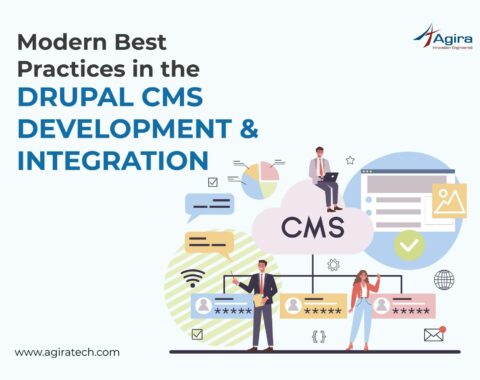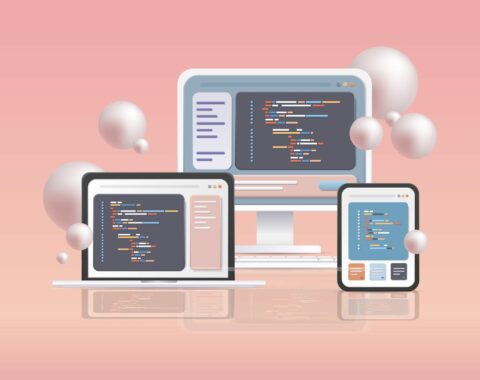Table of Contents
What is ERP – A simple Explanation
Earlier, Material Resource Planning tools were used to manage the business in various verticals such as Manufacturing, Purchasing, and selling items. The advancement of technology has lead to the development of an integrated software called ERP.
What is ERP?
ERP is an integrated Enterprise Resource Planning; it helps to manage your business activities from the beginning to the end process from within a single software. It allows you to monitor and track the inventory and sales from a centralized system with access to different business aspects.
For example, the eCommerce module will contain many forms for items, stock, Accounting, Warehouse, Purchase, Point of sale, Inventory, Invoice, etc. You can create a report and monitor transactions of your business inside a single interface.
How do ERP Software Work?
An ERP software alters the handling of vast numbers of excel sheets, which is too time-consuming. ERP can easily record your business data and transactions as manually updated by the managers. It is a shared database to access data on various business operations.
Benefits of an ERP
The most significant advantage is digitizing the business process that streamlines the business operations and allows you to access your business from the customer perspective through a unique Enterprise Resource Planning System.
- Integrated Platform
- Generating Detailed and accurate Reports.
- Remote Based Work
- Easy & entire Backup
- Productivity is High
1. Integrated Platform
ERP is a collection of different forms and modules. So you efficiently use the software to access or analyze your data from various departments. It will help reduce the friction when Cross teams hold permission to access data in the same department. For instance, in the HR module, let assume HR needs to look into the incentives for employees. The HR manager will need to ask permission to account manager in another tool to sanction the incentives for the employees. This way, the process gets prolonged and even complicates the workflows.
2. Generating an accurate and detailed report
If you are using spreadsheets to manage your business data, generating an instant report might be quite hard. This is where ERP software simplifies the process. You can quickly create reports from cross functionals departments within a min. It enables you to integrate data and generate accurate reports after analysis of the shared data source.
Most of today’s modern ERP can create Instant custom reports.you can customize your report the needs. For example. In the ecommerce module, the easy case for report generation is to know the download count. The more detailed information about the profit/loss, projections, stock quantities, etc.
3. Increased Productivity
ERP has everything under one roof. There is no need to waste time jumping to multiple software, and employees can easily focus on their work from one platform. ERP software dramatically helps in boosting the productivity of the business.
4. Easy and entire Backup
Nowadays, cloud ERP is on-trend. It can be easily accessible using the internet. Download the software to the computers, then install and synchronized the data using the internet. In cloud ERP, you need a browser and internet connection to access your ERP account. Data storage, transactions are all done on the server end. You can access everything, anywhere, and anytime with a proper internet connection facilitating the remote work culture.
5. Remote Work
There is no need for employees to travel to the office to do their job. Instead of that, they work from their home, coworking space, or favorite spot. Of course, this does not apply to all professionals. But ERP professionals are lucky ones, and all the data are in cloud-based can able to access the data source in remote based.
When you need ERP?
If you are starting a small business with fewer employees, you can manage your business without any ERP or any business software. When your number of employees reaches nearly 100, you can manage everything with ERP software. Some of the exceptional cases, if you are run a manufacturing company and need to record the products’ entire process, you’ll need an ERP system to manage your business even if your company size is small.
Advantages of ERP used for Business
1. Platform
Desktop application / offline mode: ERP software is installed on computers in offline mode later you can synchronized data using internet
Cloud / online mode: Accessed data via the web browser. Data computation is done by the server on which your ERP account is hosted.
2. Licensing
When you host an ERP account, you should pay a fixed fee and pay additional fees for the maintenance implementation, etc.
3. Open-source
The ERP source code is available in public, so you don’t have to purchase a license .you can host the ERP yourself on your server or using an online hosting server. The total amount of open source ERP ownership is comparatively low. You can save 75% or more than that from your total cost when using open source ERP. ERPNext, Odoo, Open tabs, ERP5, Web ERP, and Openbravo are popular open-source ERP software.
4. Freemium
It is Looks like open-source where most of the modules are entirely free, but some advanced modules/ features need to be purchased.
Final Say
To conclude, ERP is the ultimate tool to improve efficiency and automate complex tasks. You can avail one or even build a customized ERP depending on your business needs.
Feel Free to connect with industry experts to chose or build cloud ERP that perfectly fits your business management.










